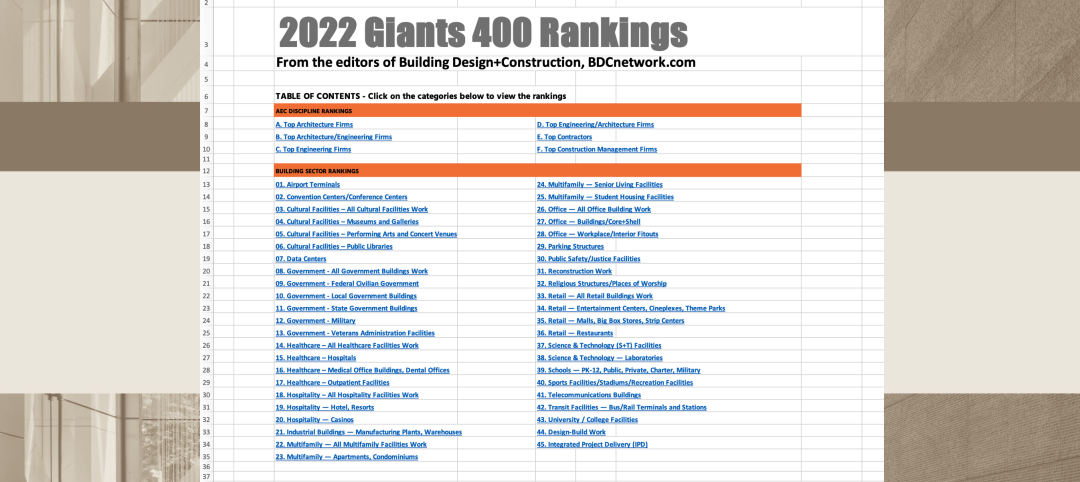Construction employment was unchanged from March to April as nonresidential contractors and homebuilders alike struggled to obtain materials and find enough workers, according to an analysis by the Associated General Contractors of America of government data released today. Association officials said the industry’s recovery was being hampered by problems getting stable prices and reliable deliveries of key materials, while the pandemic and federal policies were making it harder for firms to find workers to hire.
“Contractors are experiencing unprecedented intensity and range of cost increases, supply-chain disruptions, and worker shortages that have kept firms from increasing their workforces,” said Ken Simonson, the association’s chief economist. “These challenges will make it difficult for contractors to rebound as the pandemic appears to wane.”
Construction employment in April totaled 7,452,000, matching the March total but amounting to 196,000 employees or 2.6% below the most recent peak in February 2020. The number of former construction workers who were unemployed in April, 768,000, dropped by half from a year ago and the sector’s unemployment rate fell from 16.6% in April 2020 to 7.7% last month.
“The fact that employment has stalled—despite strong demand for new homes, remodeling of all types, and selected categories of nonresidential projects—suggests that contractors can’t get either the materials or the workers they need,” Simonson added. The economist noted that many firms report key materials are backlogged or rationed, while others report they are having a hard time getting former workers to return to work. He added these factors are contributing to rising costs for many contractors, which are details in the association’s updated Construction Inflation Alert.
Although employment was nearly stagnant for the month for both residential and nonresidential construction, the sectors differ sharply in their recovery since the pre-pandemic peak in February 2020. Residential construction firms—contractors working on new housing, additions, and remodeling—gained only 3,000 employees during the month but have added 46,000 workers or 1.6% over 14 months. The nonresidential sector—comprising nonresidential building, specialty trades, and heavy and civil engineering contractors—shed 3,000 jobs in April and employed 242,000 fewer workers or 5.2% less than in February 2020.
Association officials said that the temporary new federal unemployment supplements appear to be keeping some people from returning to work, while others are being forced to care for dependents not yet back in school or day care, or loved ones afflicted with the coronavirus. They added that federal tariffs and labor shortages within the shipping and manufacturing sector are a major reason for the rising materials prices and supply chain problems.
“Ironically, the latest coronavirus relief bill may actually be holding back economic growth by keeping people away from work at a time when demand is rebounding,” said Stephen E. Sandherr, the association’s chief executive officer. “Federal officials need to look at ways to encourage people to return to work, end damaging tariffs on materials like steel and lumber, and act to ease shipping delays and backlogs.”
Related Stories
Contractors | Feb 14, 2023
The average U.S. contractor has nine months worth of construction work in the pipeline
Associated Builders and Contractors reports today that its Construction Backlog Indicator declined 0.2 months to 9.0 in January, according to an ABC member survey conducted Jan. 20 to Feb. 3. The reading is 1.0 month higher than in January 2022.
Office Buildings | Feb 9, 2023
Post-Covid Manhattan office market rebound gaining momentum
Office workers in Manhattan continue to return to their workplaces in sufficient numbers for many of their employers to maintain or expand their footprint in the city, according to a survey of more than 140 major Manhattan office employers conducted in January by The Partnership for New York City.
Giants 400 | Feb 9, 2023
New Giants 400 download: Get the complete at-a-glance 2022 Giants 400 rankings in Excel
See how your architecture, engineering, or construction firm stacks up against the nation's AEC Giants. For more than 45 years, the editors of Building Design+Construction have surveyed the largest AEC firms in the U.S./Canada to create the annual Giants 400 report. This year, a record 519 firms participated in the Giants 400 report. The final report includes 137 rankings across 25 building sectors and specialty categories.
Multifamily Housing | Feb 7, 2023
Multifamily housing rents flat in January, developers remain optimistic
Multifamily rents were flat in January 2023 as a strong jobs report indicated that fears of a significant economic recession may be overblown. U.S. asking rents averaged $1,701, unchanged from the prior month, according to the latest Yardi Matrix National Multifamily Report.
Market Data | Feb 6, 2023
Nonresidential construction spending dips 0.5% in December 2022
National nonresidential construction spending decreased by 0.5% in December, according to an Associated Builders and Contractors analysis of data published today by the U.S. Census Bureau. On a seasonally adjusted annualized basis, nonresidential spending totaled $943.5 billion for the month.
Architects | Jan 23, 2023
PSMJ report: The fed’s wrecking ball is hitting the private construction sector
Inflation may be starting to show some signs of cooling, but the Fed isn’t backing down anytime soon and the impact is becoming more noticeable in the architecture, engineering, and construction (A/E/C) space. The overall A/E/C outlook continues a downward trend and this is driven largely by the freefall happening in key private-sector markets.
Hotel Facilities | Jan 23, 2023
U.S. hotel construction pipeline up 14% to close out 2022
At the end of 2022’s fourth quarter, the U.S. construction pipeline was up 14% by projects and 12% by rooms year-over-year, according to Lodging Econometrics.
Products and Materials | Jan 18, 2023
Is inflation easing? Construction input prices drop 2.7% in December 2022
Softwood lumber and steel mill products saw the biggest decline among building construction materials, according to the latest U.S. Bureau of Labor Statistics’ Producer Price Index.
Market Data | Jan 10, 2023
Construction backlogs at highest level since Q2 2019, says ABC
Associated Builders and Contractors reports today that its Construction Backlog Indicator remained unchanged at 9.2 months in December 2022, according to an ABC member survey conducted Dec. 20, 2022, to Jan. 5, 2023. The reading is one month higher than in December 2021.
Market Data | Jan 6, 2023
Nonresidential construction spending rises in November 2022
Spending on nonresidential construction work in the U.S. was up 0.9% in November versus the previous month, and 11.8% versus the previous year, according to the U.S. Census Bureau.

















